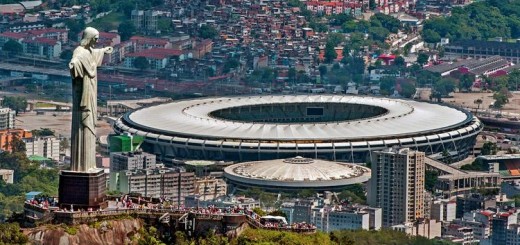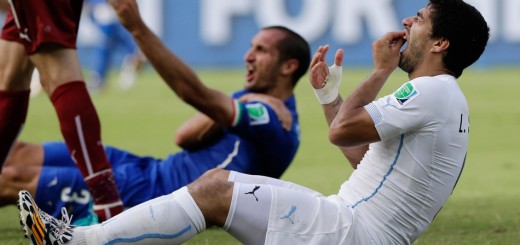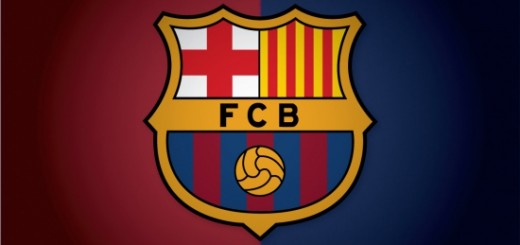Tweet
In April, FIFA sanctioned FC Barcelona for violating regulations regarding the international transfer and registration of minors (U-18 players), previously discussed here. Barcelona originally appealed FIFA’s decision, during which the FIFA Appeal Committee granted a stay of the initially imposed transfer ban. The Committee’s reasoning included the complexity of the matter and the fact that “the committee would not be able to hear the case early enough to permit a final appeal to the Court of Arbitration for Sport (CAS)” before the transfer window opened in July.[i] All aspects of FIFA’s initial ruling were upheld on Wednesday, including fines, in Swiss Francs, of 450,000 for FC Barcelona (~$500k), and 500,000 for the Spanish Football Federation (~$550k).[ii] Barcelona will face a transfer ban that will prevent the club from signing any players in the next two windows (January 2015 and Summer 2015).
While the decision has finally arrived, how much affect will it actually have? The summer transfer window, when teams are allowed to register new players, lasts from July 1 to August 31 (September 1 this year as August 31 falls on the weekend). The FIFA Appeal Committee delayed the ban just late enough for Barcelona to get a majority, if not all, of the club’s current transfer business done for the upcoming season. Barcelona’s current summer transfer window can be succinctly summarized as follows:
- Two excellent goalkeepers arrived (Marc Andre Ter Stegen and Claudio Bravo), who should easily replace the three GKs the club released (Victor Valdes, Oier, Jose Pinto);
- Two center backs in (Thomas Vermaelen and Jeremy Mathieu) to help stem the loss of defensive stalwart Carlos Puyol;
- Ivan Rakitic arrives to fill a deeper midfield role than Cesc Fabregas;
- Luis Suarez, champion biter, effectively replaces the departing Alexis Sanchez in the attack;
- Jonathan dos Santos and Isaac Cuenca depart after failing to get a firm foothold in the first team (essentially replaced by Croatian starlet Alen Halilovic); and
- Ibrahim Afellay, Cristian Tello, and Gerard Deulofeu out on loan (Tello on a two-year loan, but Afellay/Deulofeu will be back next summer anyway, it’s like having new signings).
The team has strengthened/replaced most positions fairly well already, and all of the newcomers (and returning players out on loan) will already do a good job of tiding Barcelona over for an extra year.
Why Does the Timing Work so Well for FC Barcelona?
Hypothetically, had the initial ban been laid down right after the January transfer window, the same timeline would have seen the ban upheld and imposed by the summer window. The timing would not have worked in Barcelona’s favor (pending CAS appeal and another possible stall). If the decision came just after the summer window, Barcelona would similarly not had any concrete notice that the club would not have the immediate two future windows. The fact is that decision comes with ten days remaining in the transfer window, a golden opportunity for FC Barcelona. The club could either quickly make more signings to compensate, or decide to let no one else leave to maintain the current squad. The original decision would have left Barcelona unable to complete any incoming transfer business for two windows, and would not have left the team with any time or ability to mitigate the loss of transfer opportunities. Barcelona B in the Spanish second division is also (obviously) part of the club’s setup, giving them access to a “youth squad” that is much better than most other youth/reserve squads. [iii]
The timing of the decision calls into question the overall impact of a transfer ban when a very rich club is given a chance to prepare somewhat in advance. If most teams in Europe faced the same situation, they would not be so lucky as to be able to afford, let alone sign, enough talent to hold over for a full transfer-less year. Barcelona, the second most valuable sports team in the world, has just been given ten days to essentially go wild (as much revenue as Barcelona brings in, running afoul of UEFA’s Financial Fair Play regulations would be impressive).[iv] FIFA may as well have had Barcelona in the room asking for suggestions on what would be most useful to their transfer plans and needs.
Appealing to the Court of Arbitration for Sport
Barcelona announced that they will once again appeal, this time to CAS, in hopes to avoid, or lessen, the extent of the transfer ban, saying, “FC Barcelona may not in any way share a resolution that is an affront to the spirit of our Masia, a world renowned example of academic, human and sporting education.”[v] Part of their argument is that even if they did go against a strict reading of the transfer regulations (I doubt they will admit that), FIFA shouldn’t be in the position to limit a youth player’s opportunity with a club that go above and beyond to provide any and all of the player’s needs. La Masia does provide a wonderful opportunity, and while the legislation is intended to prohibit the “exploitation” of youth players, Barcelona may have the best chance to prove that FIFA legislation is not always in a youth player’s best interests. Although teams will likely not be able to win on this issue with FIFA’s Appeal Committee, CAS provides Barcelona with an excellent opportunity.
FC Barcelona hopes to convince CAS that their youth setup (development, facilities, education, etc.) constitutes more benefit than exploitation to a foreign U-18 player. If CAS rules in their favor, Barcelona would likely no longer face a transfer ban over the next year. More importantly, clubs with great youth academies could benefit from any pro-Barcelona outcome. If CAS finds that at least some academies can meet certain standards, and restricting access to an academy such as La Masia is not in the spirit of the legislation, that decision would set a huge precedent. Such a decision could cause a change in the regulations concerning the transfer of youth players that would favor clubs with stellar youth academies and encourage and facilitate any truly life-changing opportunities for young players.
[i] Larry Mussenden, Chairman of the FIFA Appeal Committee. http://www.theguardian.com/football/2014/apr/23/barcelona-transfer-ban-suspended-fifa.
[ii] The Spanish Football Federation was fined due to the regulatory framework that allowed for the transfer of the ten minors, and has one year to make changes. They also lost their appeal.
[iii] Most youth squads or reserve teams probably wouldn’t be able to successfully compete in any second division.
[iv] We aren’t even talking “200 million spending spree” wild, a club like Barcelona could make 5-6 signings – 40 to 60 million – and probably still be a perennial European contender for 2-4 years of a transfer ban.
[v] La Masia is Barcelona’s training academy, which does offer a phenomenal opportunity for youth around the world.



Recent Comments